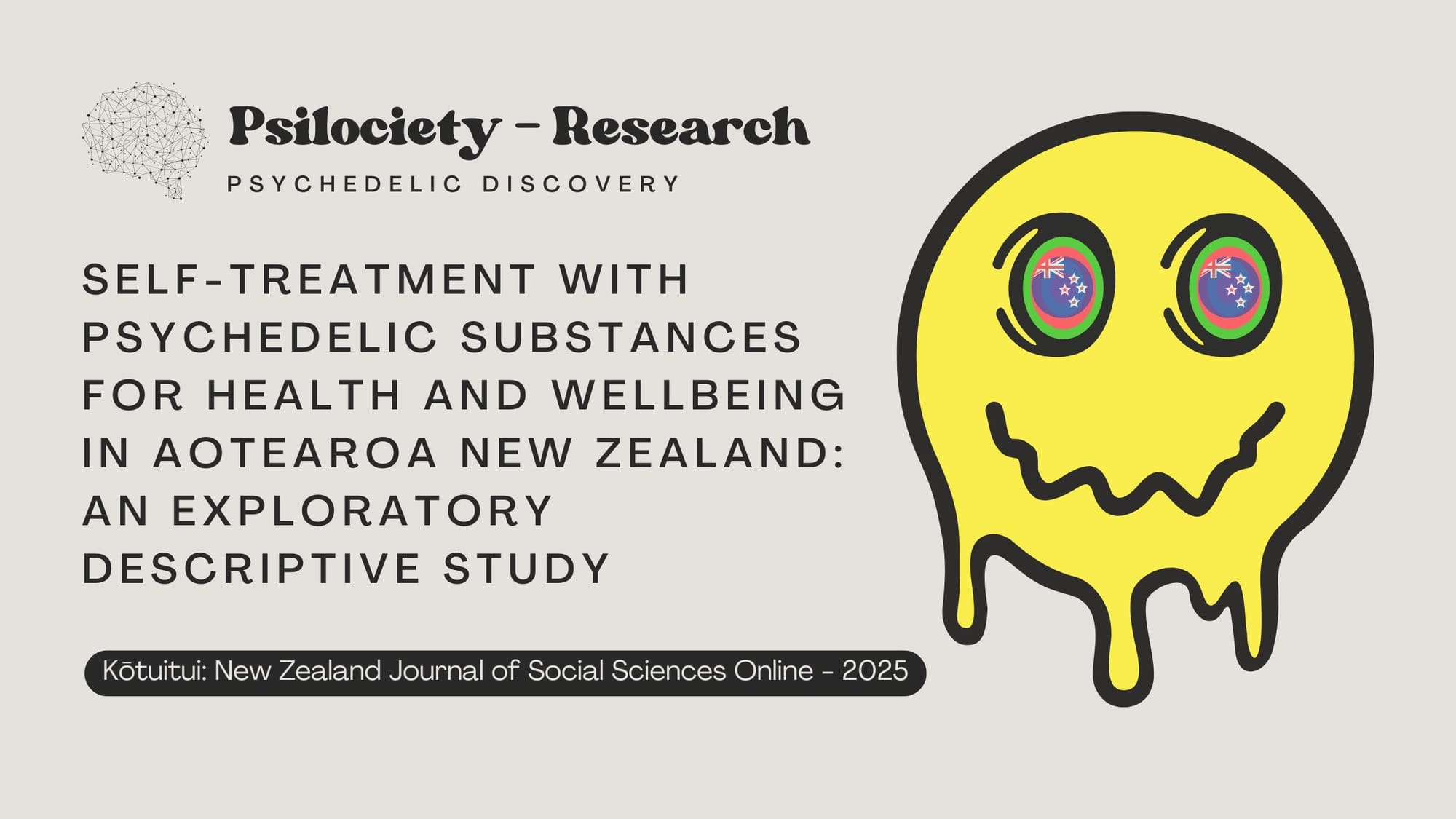Self-Treatment with Psychedelic Substances for Health and Wellbeing in Aotearoa New Zealand: An Exploratory Descriptive Study
A study exploring self-administration of psychedelics for mental health and wellbeing in New Zealand, highlighting motivations, benefits, and risks.

Title & Introduction
- Paper Title: Self-Treatment with Psychedelic Substances for Health and Wellbeing in Aotearoa New Zealand: An Exploratory Descriptive Study
- Published In: Kōtuitui: New Zealand Journal of Social Sciences Online
- Publish date: March 6, 2025
- Authors: Chris Arnison, Richard Egan, John H. Shaver
- Objective: To explore the self-administration of psychedelic substances for health and wellbeing in New Zealand, investigating motivations, perceived benefits, and potential risks.
- Importance: As clinical research on psychedelics progresses, understanding real-world self-treatment practices can inform harm reduction strategies and future therapeutic applications.
Summary & Takeaways
Key Takeaway: Individuals in New Zealand are using psychedelics for self-treatment of mental health and wellbeing concerns, often in response to gaps in conventional healthcare access.
Practical Application: Policymakers and healthcare providers can use these findings to develop harm reduction strategies and consider integrating psychedelic-assisted therapies into formal treatment frameworks.
Key Background Information
- Context: Mental health services in New Zealand are struggling to meet demand, leading some individuals to turn to alternative treatments such as psychedelics.
- Hypothesis: People engaging in self-treatment with psychedelics perceive therapeutic benefits, including symptom relief and personal growth, despite the lack of clinical supervision.
Methodology
- Study Design: Qualitative exploratory study using semi-structured interviews.
- Participants: 34 individuals in New Zealand who self-administered psychedelics for health or wellbeing purposes.
- Intervention/Exposure: Various psychedelic substances, including psilocybin, LSD, and DMT.
- Controls: No control group; focus on thematic analysis of lived experiences.
- Duration: Cross-sectional study capturing retrospective experiences.
Key Findings
Primary Outcomes:
- Participants reported improvements in mental health, including reduced anxiety and depression.
- Many used psychedelics as a last resort after exhausting conventional treatment options.
- Users developed personalized strategies to enhance benefits and minimize risks.
Secondary Outcomes:
- Some participants experienced adverse effects, such as difficult psychological experiences and integration challenges.
- Lack of medical oversight was identified as a potential risk factor.
- Participants expressed interest in legal, supervised access to psychedelic therapy.
Interpretation & Implications
- Conclusion: Self-treatment with psychedelics is a growing phenomenon in New Zealand, highlighting both potential therapeutic benefits and safety concerns.
- Implications: These findings support the need for harm reduction measures, public education, and consideration of regulated psychedelic therapy options.
- Limitations: Small sample size and reliance on self-reported data may limit generalizability.
Researchers & Publication
- Researchers: Chris Arnison, Richard Egan, John H. Shaver
- Publication Name: Kōtuitui: New Zealand Journal of Social Sciences Online
- Study URL: doi.org/10.1080/1177083X.2025.2467035

